GREECE: NEW CONCENTRATION CAMPS EMERGE
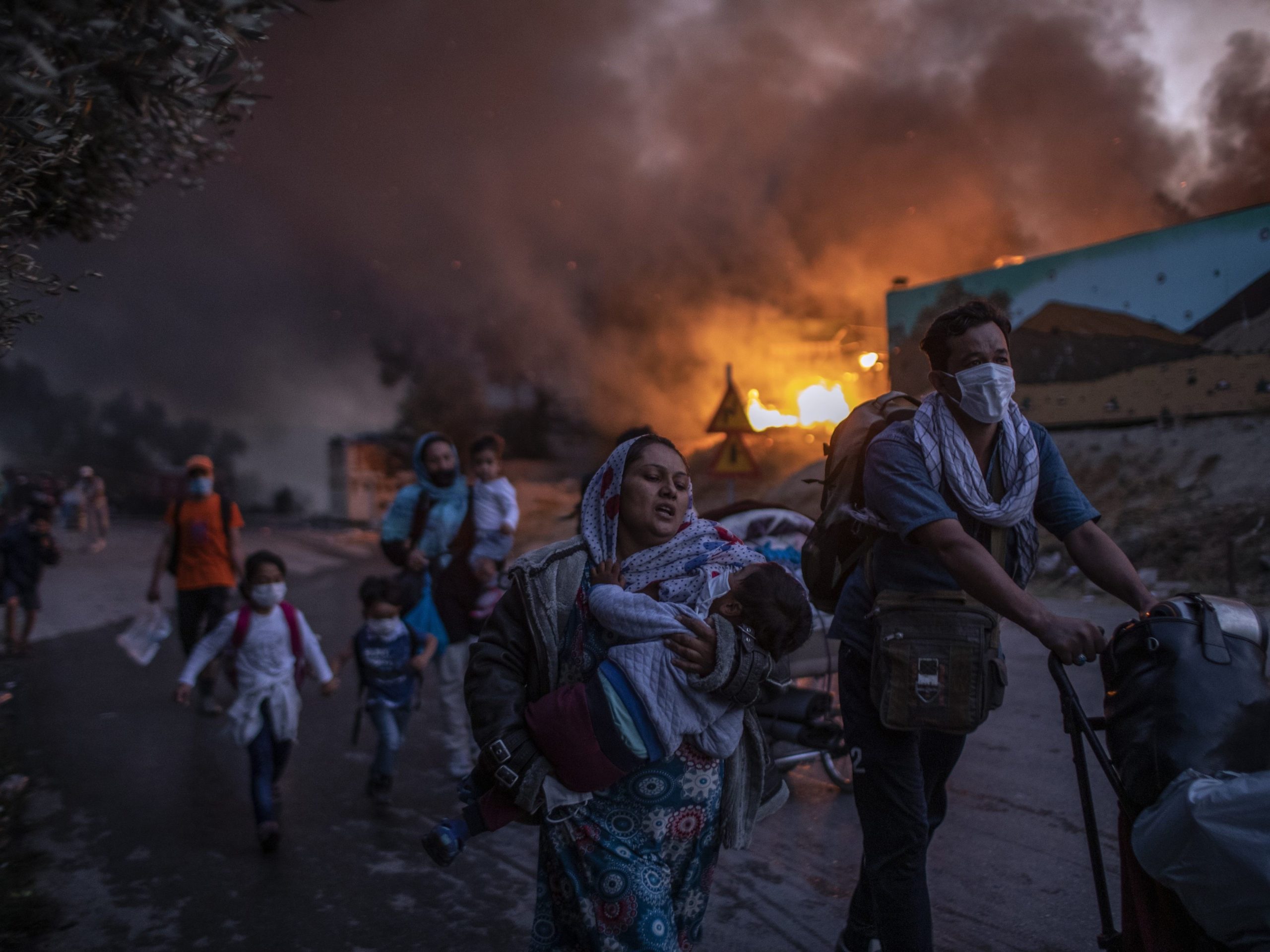
The Schengen Agreement, which allowed EU citizens to move freely within the territories of the member states – a wonderful revolution, if we think that eighty years ago those states were at war with each other and Europeans were dying like flies crossing the borders, or just because of their ethnicity. But this revolution has created new problems, especially in relation to the fact that the European Union, which is the most prosperous area in the world, is surrounded by countries at war with each other, ravaged by violence and misery. There are more and more people who want to enter, and many of them want to import, what they see as a historical enemy, blood and destruction.
One of the key issues of our time is this: we live in a huge, rich and free land, and we feel we must help those who are more unfortunate than us – not least because we know that part of their misery is due to our colonialism, i.e. the fact that we have plundered them for centuries. But it is one thing to give a refugee a home, quite another to allow an attacker to commit a massacre. Slamming the door in the face of those who ask for help, or excessively increasing controls leads to a reduction in everyone’s freedom of movement, so a seemingly unattainable balance must be found.
This dilemma has given rise to a profound and difficult debate on the concept of “defending the Union’s external borders”, on the common rules to be established, while a political debate rages on, poisoned by local opportunism and populism that prevents people from seeing the facts clearly. We must be able to regulate the influx of immigrants, which we urgently need, if we want to guarantee our level of prosperity also for the new generations, because of our negative birth rate; we must try to prevent the entry of the ill-intentioned; we must prevent fleeing peoples from becoming the blackmail weapon of dictatorial regimes (especially Russia and Turkey) that hurl them at our borders to get us into trouble or lock them up in concentration camps in exchange for our political, diplomatic and economic concessions.
Frontex
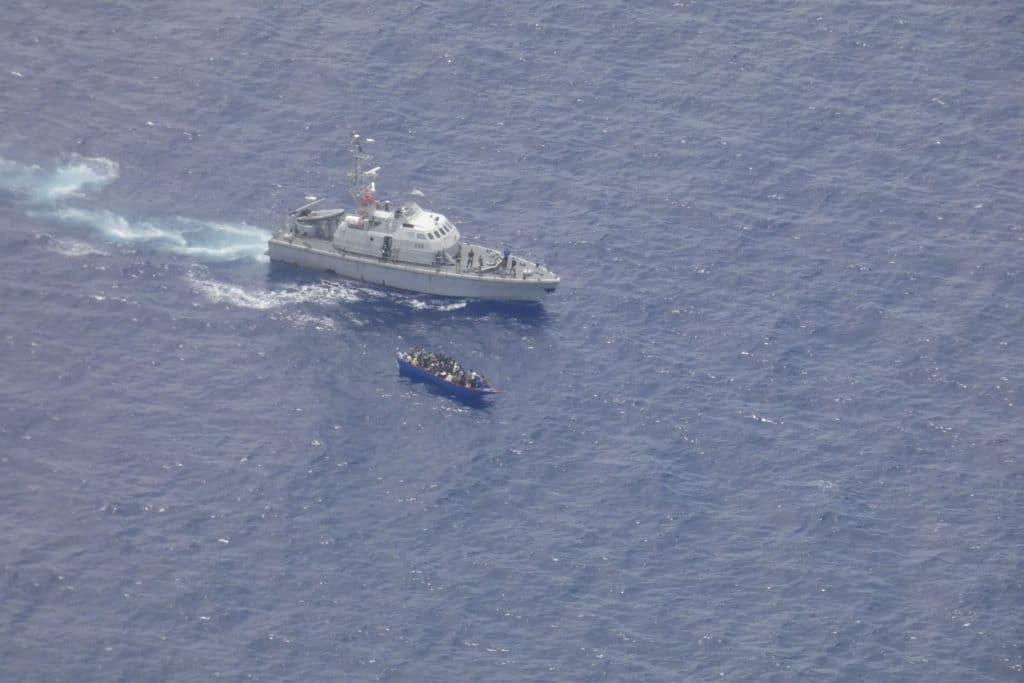
Suspicions grow about possible illegal refoulements: a Greek Frontex ship boards a boat with illegal immigrants[1]
The task of enforcing European rules was initially delegated to an internal office, Frontex, which was set up to remedy the lack of cooperation between governments: in 2004, the office evolved into the European Border and Coast Guard Agency, headed by a civilian official, Frenchman Fabrice Leggeri[2], and Slovenian Interior Minister Marko Gašperlin[3]: the new Frontex agency is made up of representatives from the 26 EU member states that have signed the Schengen Treaty, plus representatives from Ireland, Iceland, Liechtenstein, Norway and Switzerland[4]. The new agency, on the initiative of the Mediterranean countries (Spain, Malta, Greece and Italy), is also responsible for coastal patrols and the recovery of illegal immigrants lost at sea[5].
Over the years Frontex has increased its budget and influence[6]. According to the agreements, nowadays, a member state under such pressure at its borders that it is no longer able to handle it with its own border police, can request the deployment of rapid intervention teams to help. A common surveillance system called EUROSUR was created, with the approval of Article 1624 of 2016, the European Union, started the necessary paperwork for a supranational and EU Border Guard, also equipped with an Advisory Forum deputed to protect the human rights of those trying to enter illegally, and introduced an individual complaint mechanism[7].
The legal situation of Frontex is that of all agencies, which ‘are in fact separate legal entities, set up to perform specific tasks’, and are therefore institutions that, in managing their activities, are answerable to the Commission and not directly to the individual Member States, thus acquiring greater independence than other Union offices[8]. It has greater independence than Europol, the body of agents that enables criminal investigations and anti-terrorist operations regardless of national borders[9].
The launch of Frontex activities took place at Checkpoint Kapitan Andreevo, the gateway to the European Union for those arriving from Turkey via Bulgaria’s main motorway[10], and its success has been so remarkable that it has led to continuous updates of the annual budget: 143 million euros in 2015[11], 238 million in 2016[12], 281 million in 2017[13], up to 420.6 million euros spent in 2020[14] and 543 million euros planned for 2021[15], to which must be added a further 140 million euros for the construction of the Warsaw offices, in which, from 2026, more than two thousand administrative employees will work[16], to which must be added the ten thousand agents who will form the backbone of Frontex by 2027[17].
Frontex’s catalogue of areas of intervention is impressive: (a) providing a vulnerability assessment of the borders of individual Member States; (b) organising joint operations and rapid border interventions to respond to problems created by illegal immigration and cross-border crime; (c) assisting the Commission in coordinating support teams requested by an individual state in cases of exceptional border distress; (d) ensuring urgent action at external borders; (e) to provide technical and operational assistance in support of rescue operations of persons in need of rescue at sea; (f) to contribute to the establishment of an International Emergency Response Team consisting (initially) of 1500 guards; (g) to appoint Agency liaison officers in Member States; (h) to organise, coordinate and carry out return operations and interventions; (i) to promote operational cooperation between Member States and third countries on border management[18].
The civil war in Syria, the increase in the number of illegal immigrants, and some scandals, such as the suspicion that Greek border guards had made a habit of turning away anyone arriving from Turkey, even in violation of EU laws on aid to political refugees and war survivors, convinced the unruly countries[19]. According to an investigation by the British newspaper The Guardian, despite the entry into operation of Frontex, 40,000 asylum seekers have been turned back illegally in the last decade, resulting in 2,000 deaths – allegations that are being investigated by OLAF (European Union Anti-Fraud Agency) [20].
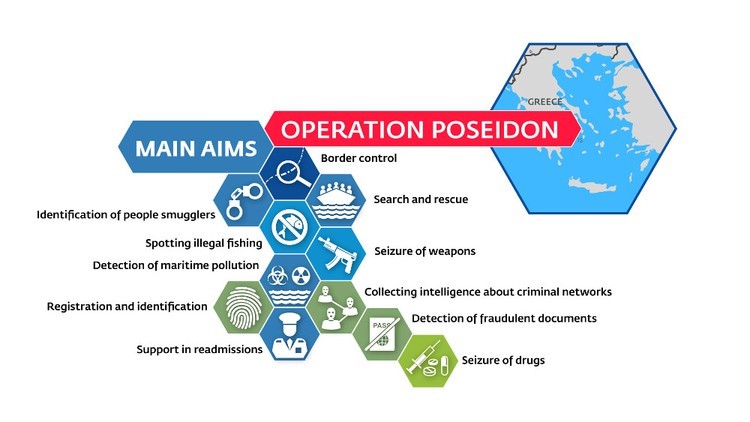
The main objectives of Operation Poseidon[21]
The investigation, opened in 2020, identifies several suspicious incidents – suspicions that have led some officials, including senior ones, to leave the agency[22]. The international press went wild, and in October 2020 the German weekly Der Spiegel also published a chilling investigation into the mistakes and misdeeds of European border agents[23]. In particular, the Greek Coast Guard (HCG) was accused of repeated violations of EU laws[24]. On 7 December 2020, OLAF ordered a search of the offices of Executive Director Fabrice Leggeri, as well as his chief of staff, Thibauld de La Haye Jousselin, and found further evidence of human rights violations[25].
These violations have two procedures: a) HCG prevents migrants at sea from landing, either by blocking the dinghy until it runs out of fuel, or by deactivating the engine. When the engine stops working, the dinghy is left adrift so that the waves carry it back into Turkish territorial waters[26]; b) migrants who have reached the beach are arrested, loaded onto a new dinghy, towed out to sea and abandoned to their fate[27]. This should have changed with Frontex[28]. Nevertheless, the barbarity continues[29].
Fabrice Leggeri tries to play down: on 24 July 2020, in a hearing before the Civil Liberties Committee of the European Parliament, he admitted to only one incident[30], which is in stark contrast to the claims of journalists investigating Operation Poseidon (the name given to Frontex’s activities in the Aegean) and who have been observing the movements of EU vessels for months[31]. Leggeri’s allegations[32] did not lead either the Commissioner for Home Affairs, Ylva Johansson, to back down from her request for an urgent and extraordinary meeting of Frontex’s Board of Directors[33], or the European Ombudsman, Emily O’Reilly, to open an investigation[34], which was closed on 15 June 2021[35] with the following epitaph: “The Ombudsman finds Frontex’s delay in implementing the important changes introduced by Regulation 2019/1896 regrettable. However, as the situation is in the process of being resolved, the Ombudsman does not consider it justified to delve further into the matter”[36].
But this does not help to calm the waters. According to the Greek newspaper Kathimerini, Fabrice Leggeri had ‘actively resisted’ the recruitment of the 40 human rights officers, considering the issue not to be a priority[37]. According to the newspaper, the director ‘repeatedly made it clear to staff’ that ‘Frontex is not an expensive lifeguard service’ and made it clear to operational staff that reporting illegal rejections would damage the careers of Frontex staff[38].
According to the same source, the reporting of incidents is “intentionally centralised to be slow, cumbersome and very discreet”[39]. Some of Frontex’s main operations include Joint Operation Themis (Italy), Joint Operation Poseidon Sea (Greece), Operations Indalo and Minerva (Spain), the Western Balkans (Albania, Montenegro) and activities in Bulgaria and Hungary[40]. In the international press, Frontex is still referred to as ‘the dirty hands of the European Union’[41]. According to experts, such as Professor Giuseppe Campesi, professor of Political Science in Rome and contributor to many journals of legal philosophy, the Frontex experience is a sort of open-air laboratory in which we try to understand to what extent the European population, frightened by immigration, is willing to accept human rights violations and even massacres at their borders[42].
The strategy of externalising borders
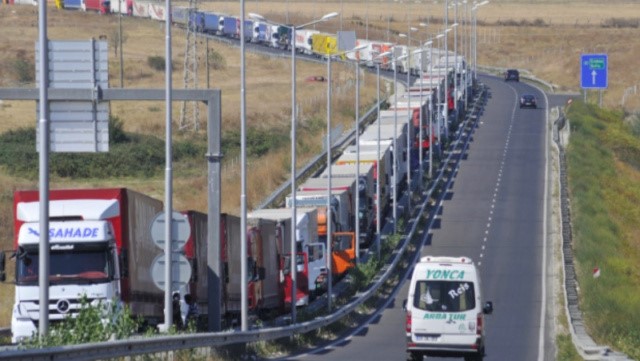
Trucks queued for 40 km along the motorway, entering Bulgaria every day from Turkey through the Kaptain Andreevo checkpoint[43]
Campesi underlines the fact that, although Frontex acts independently, its agents pursue a policy that is not subject to the scrutiny of the electorate[44]: ‘The executive bodies of Frontex are in fact composed of government representatives and the heads of the national border police. So the overall strategy is decided at political level, (…) in a strategy that relies on the cooperation of third countries, such as Turkey (…) or the so-called Libyan coastguard, not so much to reject but to bring back migrants (…). Therefore, the Agency has tried, as far as possible, not to carry out rejections directly but has actively cooperated by offering logistical support to the “pull-back” activities carried out by the agencies of the third countries with which we cooperate”[45].
It follows that the lack of action produced by the investigations against Frontex has its raison d’être in the real spirit with which the European Union manages migratory flows: to limit them as much as possible, no matter how; to avoid having to take charge of reception, justifying itself with the misdeeds of the regimes with which we border. This is the reason for the so-called strategy of externalising borders, i.e. exporting the blockade of migrants to third countries before they reach Europe[46].
This explains the contradiction between the official policy of the individual members of the Union and the Parliament in Brussels on the one hand, and that of Frontex on the other: the latter must remain as secret as possible. Unable to develop an efficient policy of regulating the flows (by going to look for the necessary workers directly in the countries of origin, making the tragic and adventurous journeys as illegal immigrants unnecessary), of repatriating the actual illegal immigrants, of fighting against the management of the flows by dictatorial regimes and organised crime, and of truly integrating the acquired workforce, the Union spends hundreds of millions to hide its inability.
Through confidential agreements, the EU treasury finances regimes and militias in Morocco, Libya, Turkey and Egypt[47]. If it stopped doing so, these countries would close their concentration camps and escort all migrants to the European border[48]. These agreements would have to be debated and authorised by the Parliaments of the 26 states, but in practice all of them now use the strategy of externalising borders[49], despite the fact that in the past Italy and Greece have been the victims of this strategy, left with the entire management of illegal immigrants on their shoulders. In the event that the outsourcing arrangements fail, the EU has decided to set up so-called hot-spots, a fancy name for classic refugee camps, located a few kilometres from the external borders[50].
The idea was born in March 2020, when President Erdogan announced, after the intensification of clashes in Syria, to send ‘millions of refugees’ to Europe: in that month, 13,000 refugees piled up along the 212 km long Greek-Turkish land border[51]. The Greek Prime Minister Kyriakos Mītsotakīs declared a state of emergency[52], ordered the closure of the borders, deployed the armed forces, and suspended the right to seek political asylum: all measures motivated by an alleged ‘pressure’ caused by ‘a large and sudden popular mobilisation’[53].
At the same time, Athens requested the immediate deployment of special troops[54], to which Frontex responded positively on 12 March[55], while in the plenary session, the Greek delegation referred to the procedure under Article 78 TFEU to justify its decision[56]: “Where one or more Member States is faced with an emergency situation characterised by a sudden inflow of nationals of third countries, the Council, on a proposal from the Commission, may adopt temporary measures for the benefit of the Member State(s) concerned. It shall act after consulting the European Parliament”[57]. A consultation that never took place.
As was logical. Frontex’s extraordinary intervention has changed nothing, except for the fact that the Bulgarian-Turkish border is so overcrowded that lorry drivers in transit have to wait for more than a day, along a column of more than 40 km that, in any case, makes the effectiveness of the controls laughable: the Balkan route is now even more used than two years ago[58]. The wave of fugitives has been scattered in improvised camps, real open-air prisons, in which, since 2016, more than 40,000 people have crowded together with no hope of getting out, in terrible hygienic conditions, in tents surrounded by mud[59], with the local population protesting at the gates, fomented by the Hellenic extreme-right movements[60].
The hell of Mória
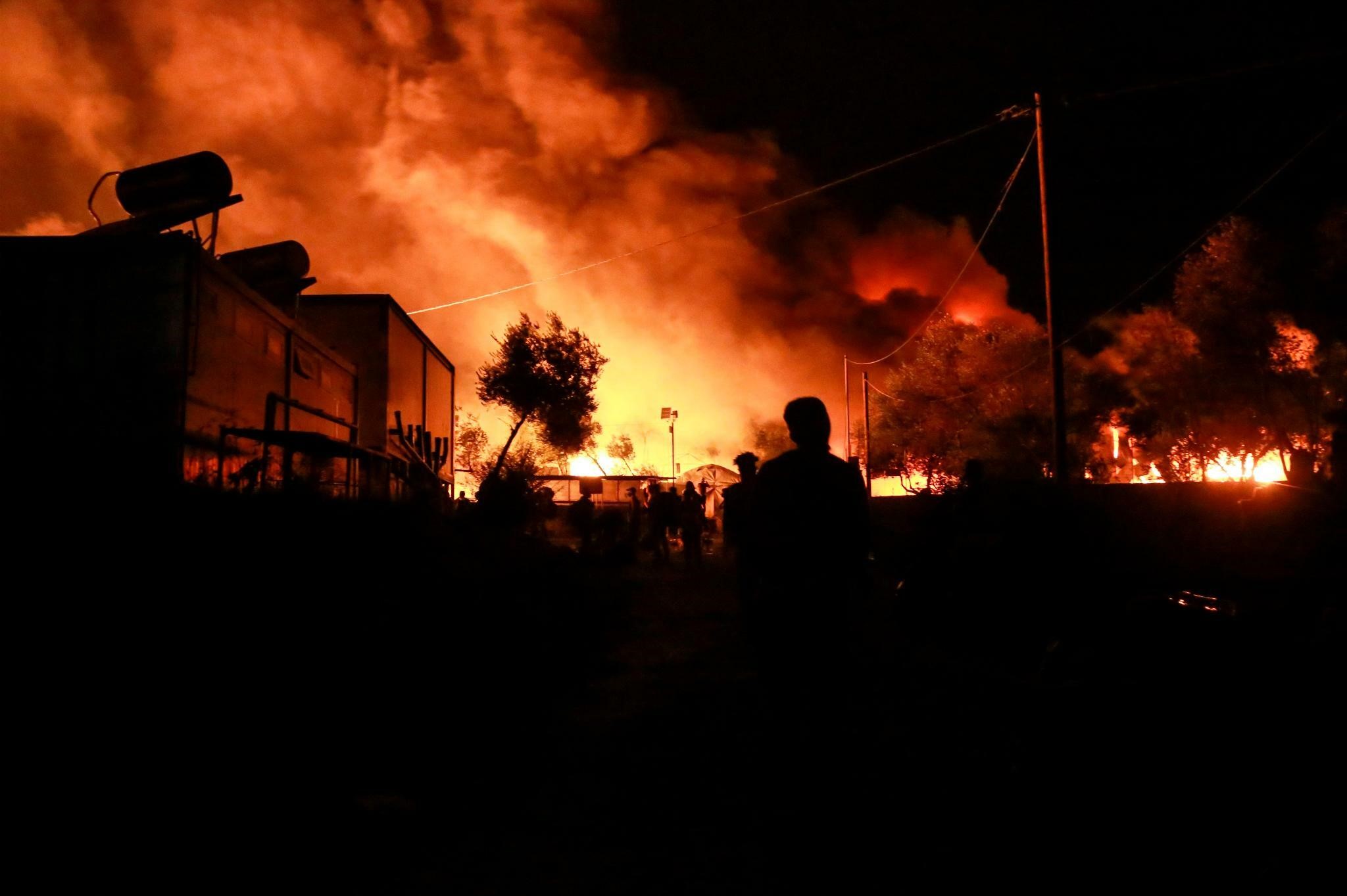
10 September 2019: The fire that destroyed the First Reception Camp on the island of Moria, Greece, killing a mother with her infant son and another child trapped in the barracks[61]
The main improvised hot-spot during the most difficult months of 2016 is the reception and identification centre of Mória, named after a village near Mytilene on the island of Lesbos, and was, as long as it existed, the largest in Europe: enclosed with barbed wire and a wire mesh, the military camp was assessed by an executive of Médecins Sans Frontières as “the worst refugee camp in the world”[62]. It was hastily set up to accommodate no more than 3,000 people for a period of no more than six months, but when it was destroyed by fire in September 2020, it housed more than 20,000 people, including 7,000 children[63].
Over the years, the camp was extended to the nearby olive grove, known as the “jungle of Moria”, where the accommodation was built of corrugated cardboard and plastic sheeting. The migrants used centuries-old olive groves for warmth, arousing the hatred of a population appalled by the crimes committed by those fleeing the camp[64]. The Swiss Jean Ziegler, who visited Mória in 2019 as a UN envoy, called it “the rebirth of a Nazi Lager on European soil”[65]. When, on the evening of 8 September 2020, the camp was almost completely destroyed by fire, the refugees were left on the streets, scared and with nowhere to go. Frontex’s intervention was to fire tear gas on the crowd of islanders protesting the unbearable situation[66].
On 15 September, the Greek authorities announced that they had arrested five men on charges of deliberately setting the fire[67], but this did not stop the head of Oxfam’s Migration Campaign, Evelien van Roemburg, from describing the events in Mória as a “humanitarian tragedy” caused by “misleading responses given for years by the European Union and its member states to people fleeing conflict and persecution[68]“. This denunciation echoed that of Marco Sandrone, head of Médecins Sans Frontières in Lesbos, who called for an enquiry into the political responsibility for the Greek hot-spots disaster[69].
In the international press, the Mória tragedy became an opportunity to shine a spotlight on the disaster of European immigration policy, initiated by Pope Francis I[70] after he personally went to the rubble of the camp[71], and continued through the mouths of many celebrities, such as the actress Angelina Jolie, who had already met the refugees in the Mória camp in March 2016 to testify and urge the importance of greater commitment on the part of the UNHRC and the Greek government[72]. While the Greek judiciary convicted Afghan refugees responsible for the fire[73], the government in Athens moved the migrants to a new camp on the nearby peninsula of Kara Tepe, already known as Mória 2.0[74].
To the general indignation, the European Union voted a Migration Pact, which proclaims the inviolability of refugees’ human rights and makes Frontex and nation states responsible for violations, but does not say how to prevent them[75]. Two tools are being tested: the Migration and Technology Monitor[76] and the Refugee Lab[77], two projects for the automation and digitalisation of camp surveillance[78], whose most advanced products are drones equipped with biometric sensors and capable of deciding their own interventions automatically[79]. Frontex management proudly announced on 26 March 2021 that it had achieved outstanding results in ‘automated border control, object recognition to detect suspicious vehicles or goods, and the use of geospatial data analysis for operational awareness and threat detection’[80].

The presentation of the anti-migrant drones that are part of the Migration Tech Monitor project[81]
In the meantime, the international associations for the protection of human rights are unleashed and demand the immediate closure of the hot-spots[82], so that on 23 September 2020 the European Parliament takes a further decision: to delegate decisions on migration to a staff of eight officials, appointed by the HOME (Directorate General for Migration and Home Affairs), which also supervises Frontex[83]. The staff becomes a completely independent EU office, called TFMM (Task Force Migration Management[84]) and is entrusted to a long-standing EU official, Beate Gminder from Bavaria[85].
In this way the constructive debate on migration issues is completely cancelled out, as they become a mere question of public order, and are dealt with in a police-like way by an entity that answers vaguely to HOME but, in practice, is born independent and with its own budget, which is being defined in these weeks[86]. The first and so far only decision of TFMM is to build six new concentration camps on Greek territory: in Lesvos, Samos, Chios, Leros and Kos, whose main measure to protect human rights is “video surveillance with motion analysis algorithms that monitor the behaviour and movement of the residents of the centre”[87].
The of the Home, Ms Ylva Johansson, stated on 24 March 2021 that the new camps will not be “closed”[88] and that the complex surveillance systems serve to reassure the local population who, in TFMM’s plans, would have direct and personal contact with the “guests” of the camps[89]. While the work in the other camps is being carried out in the secrecy of the military defence of the sites, the new camp in Samos is being inaugurated on 18 September 2021 by Mrs Gminder: the fact is a shock for all those concerned with migration issues. As the well-known TV commentator Jan Böhmermann explains, smiling through clenched teeth, the fact that a German citizen is the head of a series of concentration camps built on the edge of the Empire is something that leaves a very unpleasant taste in the mouth[90].
The new structure is isolated, surrounded by barbed wire, x-ray scanners and magnetic doors, and controlled by a large police force; the only meeting points are indoors, outside there are no squares: thus the ‘guests’ become invisible and the procedures for rejections are no longer subject to any legal protection[91]. As Anna Clementi of the association Lungo la Rotta Balcanica points out[92], Samos ‘is part of a system that marginalises migrants and traps them, considering also the long times of the procedure to apply for international protection. The government does not seem interested in starting inclusion projects but, on the contrary, in making their stay in the country unbearable’[93].
All this costs a fortune in military and administrative investments, but also further aid to the Greek government so that it accepts the situation and cannot be accused of being a party to human rights violations[94]. The Greek Minister for Immigration Problems, Notis Mitarachi, said that he was enthusiastic about the fact that the responsibility for the concentration camps lies with the European Union, and even more so about the 3 billion Euros of appropriations from Brussels to maintain an efficient administrative and supervisory structure, and to continue running the hot-spot of Kara Tepe[95].
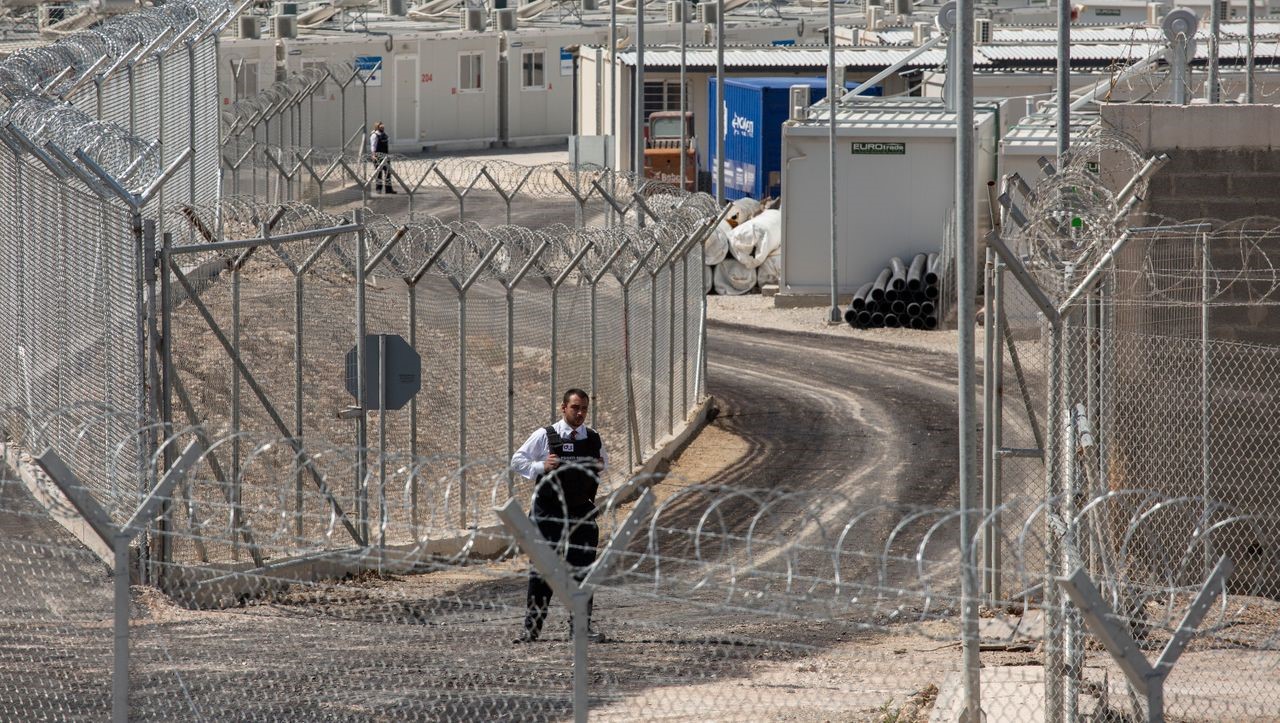
The new migrant centre, opened on 18 September 2021 on the island of Samos[96]
Ms Johansson sees no alternative: “For three years there has been no progress in finding a political solution,” she said, adding that Greece and the Mediterranean countries have suffered from the reluctance of other EU member states to take in refugees[97]. A few days ago, at Ms Johansson’s invitation, the EU allocated a further 276 million euros to build “closed facilities with NATO-style double fencing, strictly controlled entry and fire protection systems”, exactly the opposite of what Ms Gminder said no more than three months ago[98].
This is how Europe reacts to the February 2019 revocation of the migrant agreements concluded between the EU and Turkey on 18 March 2016[99]. An agreement according to which, in exchange for an interest-free loan of €3 billion, Turkey undertook to detain migrants who crossed its territory to reach Greece[100]. While on the one hand the camps are being opened, fearing an avalanche at the Greek borders, on the other hand the Turkish regime is giving in: the Cypriot Christos Stylianidīs, European Commissioner for Humanitarian Aid, convinced the Brussels Parliament to allocate EUR 6 billion for the Turkish concentration camps[101].
A few weeks later, this figure rose by another 663 million[102], and the entire committee surprisingly gave its favourable opinion on the resumption of arms sales to Turkey – arms which, of course, will be used to repress the Turkish people and continue the attempted genocide of the Kurds[103]. It is still not enough. In June 2021 Erdogan also put on the table the request for recognition of his military role in the Mediterranean as sponsor of the Libyan rebel militias – a project that, if it were to be accepted, would mean having the Turkish navy in front of Sicily and Sardinia, and would give the regime in Ankara the management of the millions of refugees who, to reach Europe, choose the coasts of Libya[104]. A nightmarish vision.
But this is the real evil of the European Union: it reproduces on a grand scale what was already unhealthy in the nation states, first of all the tendency to avoid, as long as possible, tackling the heart of the most important issues, trying to reduce their impact with (very expensive) measures decided according to the popular sentiment of the moment. In our case, as long as Brussels does not have a real proactive common policy on the management of migratory flows, there will always be more concentration camps and violence, in the (vain) hope that those pressing at the borders will decide to stop and go home. A ‘miracle’ that, with increasing misery, local wars and warming of the atmosphere, is impossible. Who knows what we will do when, in a few years’ time, the current number of refugees will have increased tenfold.
GER012
[1] https://sea-watch.org/frontex_crimes/
[2] https://st.ilsole24ore.com/art/mondo/2015-03-06/da-frontex-triton-cos-e-frontex–230406.shtml?uuid=ABo0Fd5C
[3] https://frontex.europa.eu/about-frontex/who-we-are/management-board/
[4] https://frontex.europa.eu/about-frontex/who-we-are/management-board/
[5] https://ec.europa.eu/commission/presscorner/detail/it/IP_15_6327 ; https://www.consilium.europa.eu/it/press/press-releases/2016/09/14/european-border-coast-guard/
[6] https://altreconomia.it/nuovo-bilancio-frontex/
[7] https://www.meltingpot.org/IMG/pdf/tesi_scquizzato.pdf
[8] https://european-union.europa.eu/institutions-law-budget/institutions-and-bodies/institutions-and-bodies-profiles_it
[9] https://www.internazionale.it/opinione/francesca-spinelli/2021/11/04/frontex-campagna-abolizione
[10] https://frontex.europa.eu/media-centre/multimedia/photos/frontex-the-european-border-and-coast-guard-agency-launch-2016-3P9Uls
[11] https://frontex.europa.eu/assets/Key_Documents/Budget/Budget_2015_N3.pdf
[12] https://ec.europa.eu/commission/presscorner/detail/en/MEMO_15_6332
[13] https://ec.europa.eu/commission/presscorner/detail/en/MEMO_15_6332
[14] https://ec.europa.eu/commission/presscorner/detail/en/IP_19_2809
[15] https://frontex.europa.eu/assets/Key_Documents/Budget/Budget_2021.pdf
[16] https://www.internazionale.it/opinione/francesca-spinelli/2021/11/04/frontex-campagna-abolizione
[17] https://ec.europa.eu/commission/presscorner/detail/en/ip_19_2166
[18] https://www.consilium.europa.eu/it/press/press-releases/2016/09/14/european-border-coast-guard/ ; https://eur-lex.europa.eu/legal-content/IT/TXT/?uri=celex%3A32013R1052 ; https://eur-lex.europa.eu/legal-content/IT/TXT/?uri=celex%3A32016R1624 ; https://eur-lex.europa.eu/legal-content/IT/TXT/HTML/?uri=LEGISSUM:4426621
[19] https://www.nytimes.com/2020/11/26/world/europe/frontex-migrants-pushback-greece.html ; https://eur-lex.europa.eu/legal-content/IT/TXT/?uri=celex%3A32013R1052
[19] https://eur-lex.europa.eu/legal-content/IT/TXT/?uri=celex%3A32016R1624 ; https://eur-lex.europa.eu/legal-content/IT/TXT/HTML/?uri=LEGISSUM:4426621
[20] https://www.theguardian.com/global-development/2021/may/05/revealed-2000-refugee-deaths-linked-to-eu-pushbacks ; https://theconversation.com/frontex-should-eu-agency-linked-to-thousands-of-deaths-from-border-pushbacks-be-responsible-for-migrant-safety-156542 ; https://www.politico.eu/article/olaf-opens-investigation-on-frontex-for-allegations-of-pushbacks-and-misconduct/ ; https://voelkerrechtsblog.org/a-pushback-against-international-law/
[21] https://frontex.europa.eu/we-support/main-operations/operation-poseidon-greece-/
[22] https://www.politico.eu/article/olaf-opens-investigation-on-frontex-for-allegations-of-pushbacks-and-misconduct/
[23] https://www.bellingcat.com/news/2020/10/23/frontex-at-fault-european-border-force-complicit-in-illegal-pushbacks/
[24] https://www.nytimes.com/2020/08/14/world/europe/greece-migrants-abandoning-sea.html ; https://www-ecchr-eu.translate.goog/en/glossary/push-back/?_x_tr_sl=en&_x_tr_tl=it&_x_tr_hl=it&_x_tr_pto=op,sc
[25] https://www.theguardian.com/global-development/2021/may/05/revealed-2000-refugee-deaths-linked-to-eu-pushbacks ; https://theconversation.com/frontex-should-eu-agency-linked-to-thousands-of-deaths-from-border-pushbacks-be-responsible-for-migrant-safety-156542 ; https://www.politico.eu/article/olaf-opens-investigation-on-frontex-for-allegations-of-pushbacks-and-misconduct/ ; https://voelkerrechtsblog.org/a-pushback-against-international-law/
[26] https://www.bellingcat.com/news/2020/10/23/frontex-at-fault-european-border-force-complicit-in-illegal-pushbacks/
[27] https://www-bellingcat-com.translate.goog/news/uk-and-europe/2020/05/20/samos-and-the-anatomy-of-a-maritime-push-back/?_x_tr_sl=en&_x_tr_tl=it&_x_tr_hl=it&_x_tr_pto=sc ; https://www.bellingcat.com/news/2020/10/23/frontex-at-fault-european-border-force-complicit-in-illegal-pushbacks/
[28] https://www.bellingcat.com/news/2020/10/23/frontex-at-fault-european-border-force-complicit-in-illegal-pushbacks/ ; https://www.unhcr.org/uk/1951-refugee-convention.html
[29] https://www.bellingcat.com/app/uploads/2020/10/FOI-3-ΔΔΜΕ_564_ΧΡΙΣΤΙΔΗΣ-SPIEGEL-ARD-LIGHTHOUSE-REPORTSBELLINGCAT-TX-ASAHI._signed.pdf ; https://www.bellingcat.com/news/2020/10/23/frontex-at-fault-european-border-force-complicit-in-illegal-pushbacks/
[30] https://www.bellingcat.com/app/uploads/2020/10/FOI-1-20200724_ED-reply-to-LIBE-Chairman.pdf
[31] https://www.bellingcat.com/news/2020/10/23/frontex-at-fault-european-border-force-complicit-in-illegal-pushbacks/ ; https://frontex.europa.eu/we-support/main-operations/operation-poseidon-greece-/
[32] https://www-politico-eu.translate.goog/article/fabrice-leggeri-frontex-eu-border-agency-migrant-pushback-allegations/?_x_tr_sl=en&_x_tr_tl=it&_x_tr_hl=it&_x_tr_pto=op,sc
[33] https://www-politico-eu.translate.goog/article/migration-pushback-eu-frontex-meeting/?_x_tr_sl=en&_x_tr_tl=it&_x_tr_hl=it&_x_tr_pto=sc
[34] https://www.ombudsman.europa.eu/export-pdf/en/143108 ; https://www.ombudsman.europa.eu/export-pdf/en/134739
[35] https://www.ombudsman.europa.eu/export-pdf/en/134739
[36] https://www.ombudsman.europa.eu/export-pdf/en/143108 ; https://www.ombudsman.europa.eu/export-pdf/en/143159
[37] https://www.ekathimerini.com/news/261205/olaf-raided-eu-border-chiefs-office-over-migrant-pushback-claims/
[38] https://www.ekathimerini.com/news/261205/olaf-raided-eu-border-chiefs-office-over-migrant-pushback-claims/
[39] https://www.ekathimerini.com/news/261205/olaf-raided-eu-border-chiefs-office-over-migrant-pushback-claims/
[40] https://frontex.europa.eu/about-frontex/faq/frontex-operations/
[41] https://www.hrw.org/report/2011/09/21/eus-dirty-hands/frontex-involvement-ill-treatment-migrant-detainees-greece
[42] https://www.meltingpot.org/2021/02/frontex-la-polizia-di-frontiera-come-strumento-di-esternalizzazione-dei-confini-europei/ ; https://www.deriveapprodi.com/prodotto/polizia-della-frontiera/
[43] https://www.novinite.com/articles/200532/20+Kilometers+Long+Truck+Queue+on+Kaptain+Andreevo+Border+Checkpoint+-+Drivers+Left+3+without+Toilet+and+Water+for+3+Days
[44] https://www.meltingpot.org/2021/02/frontex-la-polizia-di-frontiera-come-strumento-di-esternalizzazione-dei-confini-europei/
[45] https://www.meltingpot.org/2021/02/frontex-la-polizia-di-frontiera-come-strumento-di-esternalizzazione-dei-confini-europei/
[46] https://www.meltingpot.org/2021/02/frontex-la-polizia-di-frontiera-come-strumento-di-esternalizzazione-dei-confini-europei/
[47] https://www.meltingpot.org/tag/ceuta-e-melilla/
[48] https://www.meltingpot.org/2020/03/canali-umanitari-subito-immediata-evacuazione-dalla-grecia-e-dalla-turchia/#.YCDwM-rSLQU
[49] https://altreconomia.it/frontiera-buon-affare-inchiesta/
[50] https://www.meltingpot.org/2021/02/frontex-la-polizia-di-frontiera-come-strumento-di-esternalizzazione-dei-confini-europei/
[51] https://www.meltingpot.org/2020/03/canali-umanitari-subito-immediata-evacuazione-dalla-grecia-e-dalla-turchia/#.YCDwM-rSLQU
[52] https://www.meltingpot.org/2020/03/la-grecia-sospende-i-diritti-umani-fondamentali-ai-richiedenti-asilo/ ; https://www.facebook.com/537310533084501/posts/1523758971106314/?app=fbl
[53] https://www.meltingpot.org/2020/03/canali-umanitari-subito-immediata-evacuazione-dalla-grecia-e-dalla-turchia/#.YCDwM-rSLQU https://www.meltingpot.org/2020/03/la-grecia-sospende-i-diritti-umani-fondamentali-ai-richiedenti-asilo/ ; https://www.facebook.com/537310533084501/posts/1523758971106314/?app=fbl
[54] https://twitter.com/Frontex/status/1234400265685684224
[55] https://frontex.europa.eu/media-centre/news/news-release/frontex-launches-rapid-border-intervention-on-greek-land-border-J7k21h
[56] https://www.meltingpot.org/2020/03/la-grecia-sospende-i-diritti-umani-fondamentali-ai-richiedenti-asilo/
[57] https://www.meltingpot.org/2020/03/la-grecia-sospende-i-diritti-umani-fondamentali-ai-richiedenti-asilo/
[58] https://www.novinite.com/articles/200532/20+Kilometers+Long+Truck+Queue+on+Kaptain+Andreevo+Border+Checkpoint+-+Drivers+Left+3+without+Toilet+and+Water+for+3+Days
[59] https://www.meltingpot.org/2020/03/canali-umanitari-subito-immediata-evacuazione-dalla-grecia-e-dalla-turchia/#.YCDwM-rSLQU
[60] https://www.meltingpot.org/tag/isola-di-lesvos/ ; https://www.meltingpot.org/tag/isola-di-chios/
[61] https://www.tagesspiegel.de/politik/fluechtlingslager-moria-der-brand-das-lager-und-das-leid/26173488.html
[62] https://www.youtube.com/watch?v=8v-OHi3iGQI
[63] https://www.bbc.com/news/world-europe-45271194
[64] https://www.hrw.org/news/2016/05/19/greece-refugee-hotspots-unsafe-unsanitary ; https://www.protothema.gr/greece/article/993437/metanasteutiko-moria-afanizodai-aionovia-elaiodedra-kai-ginodai-kausimi-uli/
[65] https://www.illustre.ch/magazine/jean-ziegler-avons-recree-camps-concentration
[66] https://www.theguardian.com/world/2020/sep/12/greek-riot-police-fire-teargas-at-refugees-campaigning-to-leave-lesbos
[67] https://www.ilfattoquotidiano.it/2020/09/15/moria-arrestate-cinque-persone-per-lincendio-del-campo-migranti-a-lesbo-berlino-fa-sapere-che-accogliera-oltre-1-500-sfollati/5932293/
[68] https://www.ilfattoquotidiano.it/2020/09/09/incendio-nel-campo-migranti-a-lesbo-migliaia-di-sfollati-le-autorita-greche-fiamme-appiccate-dai-profughi-per-protesta/5925499/
[69] https://www.ilfattoquotidiano.it/2020/09/09/incendio-nel-campo-migranti-a-lesbo-migliaia-di-sfollati-le-autorita-greche-fiamme-appiccate-dai-profughi-per-protesta/5925499/
[70] https://www.agi.it/cronaca/video/2020-09-13/papa-profughi-lesbo-accoglienza-umana-dignitosa-9647775/
[71] https://www.corriere.it/esteri/16_aprile_16/papa-partita-visita-lampo-lesbo-andra-campi-profughi-tsipras-e4e1ecba-0392-11e6-b48d-5f404ca1fec7.shtml
[72] https://www.reuters.com/article/us-europe-migrants-greece-jolie-idCAKCN0WJ2LE
[73] https://www.swissinfo.ch/ita/tutte-le-notizie-in-breve/grecia–4-afghani-condannati-a-10-anni–incendiarono-campo-moria/46701498
[74] https://euractiv.it/section/migrazioni/opinion/moria-2-0-il-campo-profughi-dove-lue-prova-nuove-tecnologie-di-sorveglianza/
[75] https://euromedrights.org/wp-content/uploads/2021/05/EN_4AnalysisPACT.pdf
[76] https://www.migrationtechmonitor.com
[78] https://www.euractiv.com/section/digital/opinion/surveillance-on-the-seas-europes-new-migration-pact/
[79] https://edri.org/wp-content/uploads/2020/11/Technological-Testing-Grounds.pdf
[80] https://frontex.europa.eu/media-centre/news/news-release/artificial-intelligence-based-capabilities-for-european-border-and-coast-guard-1Dczge
[81] https://www.migrationtechmonitor.com/news
[82] https://twitter.com/g_christides/status/1376474319828713473?s=20
[83] https://ec.europa.eu/home-affairs/agencies_en
[84] https://ec.europa.eu/home-affairs/policies/migration-and-asylum/task-force-migration-management/about-task-force-migration-management_en
[85] https://ec.europa.eu/info/persons/beate-gminder_en
[86] https://ec.europa.eu/home-affairs/policies/migration-and-asylum/task-force-migration-management/about-task-force-migration-management_en
[87] https://05cd942b-77f4-4d21-b3ea-797e75ad39b3.filesusr.com/ugd/0d6197_61731d4c32f245648587332a279e5033.pdf
[88] https://ec.europa.eu/commission/commissioners/2019-2024/johansson/blog/spring-best-time-prepare-winter-why-i-am-visiting-lesvos-now_en
[89] https://ec.europa.eu/commission/commissioners/2019-2024/johansson/blog/spring-best-time-prepare-winter-why-i-am-visiting-lesvos-now_en
[90] https://www.zdf.de/comedy/zdf-magazin-royale/zdf-magazin-royale-vom-22-oktober-2021-100.html
[91] https://altreconomia.it/il-nuovo-campo-sullisola-di-samos-e-la-fine-del-sistema-dasilo-in-grecia/
[92] https://lungolarottabalcanica.wordpress.com
[93] https://altreconomia.it/il-nuovo-campo-sullisola-di-samos-e-la-fine-del-sistema-dasilo-in-grecia/
[94] https://www.dw.com/en/greece-eu-funds-migrants-lesbos-asylum/a-57051718
[95]https://www.dw.com/en/greece-eu-funds-migrants-lesbos-asylum/a-57051718
[96] https://altreconomia.it/il-nuovo-campo-sullisola-di-samos-e-la-fine-del-sistema-dasilo-in-grecia/
[97] https://www.dw.com/en/greece-eu-funds-migrants-lesbos-asylum/a-57051718
[98] https://www.dw.com/en/greece-eu-funds-migrants-lesbos-asylum/a-57051718
[99] https://www.dw.com/en/greece-eu-funds-migrants-lesbos-asylum/a-57051718
[100] https://www.meltingpot.org/2021/03/turchia-la-deriva-patriarcale-e-nazionalista-anticurda/#easy-footnote-2-231930 ; https://www.consilium.europa.eu/it/press/press-releases/2016/03/18/eu-turkey-statement/ ; https://www.meltingpot.org/2020/03/canali-umanitari-subito-immediata-evacuazione-dalla-grecia-e-dalla-turchia/#.YCDwM-rSLQU ; https://www.meltingpot.org/app/uploads/2018/11/l_accordo_u.e._-_turchia_genesi_applicazione_criticita_a_due_anni_di_distanza_-_andrea_panico.pdf
[101] https://www.meltingpot.org/Io-non-ho-sogni-L-accordo-UE-Turchia-genesi-applicazione.html
[102] https://www.meltingpot.org/L-Europa-ci-ricasca-663-milioni-ad-Erdogan.html
[103] https://dossierlibia.lasciatecientrare.it/la-francia-vende-armi-a-erdogan-per-un-miliardo-di-euro/
[104] https://www.ilfoglio.it/esteri/2021/06/10/news/la-turchia-all-ue-vi-aiutiamo-con-i-migranti-in-cambio-occupiamo-i-porti-in-libia-2496079/


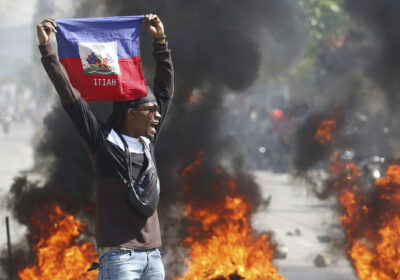
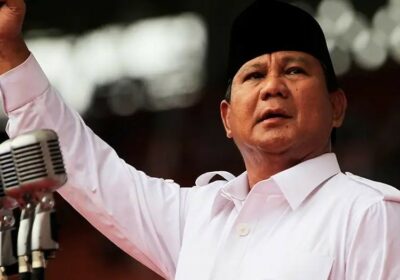
Leave a Reply